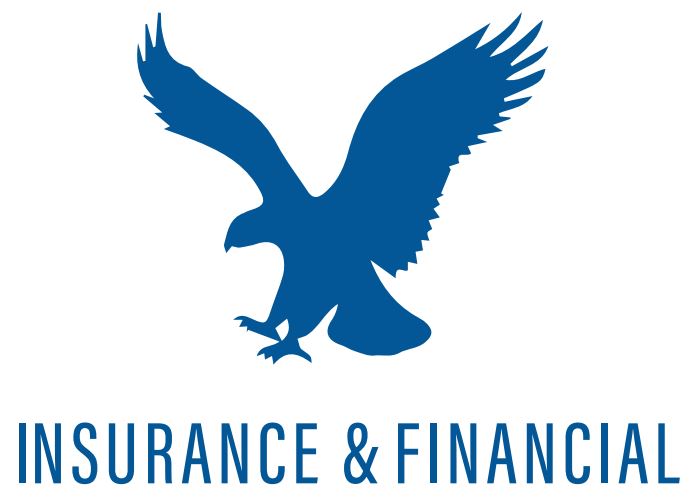How Do You Get the Most for Your Money?
11 Ways to Save Money…
So, youre shopping around for auto insurance. What do you need to know? There are a lot of ways at least 11 that you can save money. Many of these money-saving ideas may apply to you.
1. One Insurer, Multiple Policies Do you have a homeowners, renters, or condo insurance policy? If so, is it with the same insurance company that provides your auto insurance? If the answer is no, youre paying too much for both policies. Almost every insurance company that sells auto insurance wants its policyholders to also buy homeowners, renters and condo insurance from that company.
These insurers offer “multi-policy discounts.” Usually, these discounts are at least 10% and some insurers apply the discounts to both the auto and the homeowners/renters policy.
* Tip. Talk to your agent about multi-policy discounts.
2. Good Driver, Good Price? Its no secret that the better your driving record, the less you will pay for auto insurance. But did you know that most people qualify as good drivers and are eligible for discounted premiums? Some good drivers pay a lot more than others, however.
Many auto insurers are actually a collection of several insurance companies in which each caters to a certain type of driver. The worst drivers go in one company, the best in another, and a lot of people wind up in one of the middle companies.
These middle people pay less than the worst drivers, but more than the best. The thing is, many of these middle people have driving records that are just as good as those who are insured by the companies that offer the lowest rates. Yet these middle people are paying more. Why? The usual reason is that they dont know any better. No one told them which insurance company in the group had the best prices. And, probably, no one told them there was even a group of insurance companies. If you have a spotless driving record, theres no reason you shouldnt be paying the lowest price a group of insurance companies has to offer.
* Tip. Make sure youre getting the best discount for your driving record. Talk to your agent. And remember, be a safe driver. It will save you money.
3. Look For The Extras Some companies are offering benefits such as accident waivers, deductible rewards, and other perks.
* Tip. Drivers should ask about and compare the extras. Not all policies are similar. If your policy includes an accident waiver, you can avoid a sometimes hefty surcharge if you experience an accident.
4. Low Mileage, Low Price On average, people drive 1,000 to 1,250 miles a month. That is what insurance companies consider average use.
* Tip. If you drive less than the average, you could be eligible for low-mileage discounts, which some insurers offer.
5. High-Profile, High-Cost The type of car you drive is a major factor in what you pay for insurance. Is your vehicle a magnet for thieves? Is it more expensive to repair than most cars? If the answer to either of the last two questions is yes, youre paying more than the average car owner for insurance.
* Note. To get detailed information on your vehicle(s) or a vehicle youre thinking of buying log onto to the Insurance Institute for Highway Safetys website at www.iihs.org.
6. Raise Your Deductible The deductible is the amount you pay before insurance kicks in if you have a claim. For example, if you have a $250 deductible and you have an accident in which your car sustains $1,000 in damage, you pay the first $250 and your insurer pays the balance, $750. The lower the deductible you choose, the more you pay. If you have assets, you can probably afford to absorb at least $250 and probably $500 if you have a claim.
* Tip. If its been years since youve had an accident, you may be better off raising your deductible and paying less each year for insurance.
7. Drop Unnecessary Coverage Lets say you have an older car, one not worth very much. Theres really little point in having collision and comprehensive coverage. You dont have much to protect. Remember, too, that you have to subtract your deductible from any potential payout you might get.
* Tip. As a general rule, any car worth less than $1,000 shouldnt have collision and comprehensive coverage. Between the deductible and the extra expense of these coverages, the cost is probably greater than the benefit. How much is your car worth? An auto dealer can tell you, or there are plenty of books that have values of vehicles going back many, many years. There are also online references such as kbb.com and nada.com
8. Discounts, Discounts, Discounts Auto insurance companies offer several discounts for a variety of reasons. The car has automatic seat belts, air bags, anti-lock brakes, anti-theft devices, etc. The driver is a good student, which is especially valuable if you have teenage children who will be on your policy. Bank drafting can also save you money on your premium as well as paying your premium in full.
* Tip. Make sure you are taking advantage of all the discounts available to you!
9. Taking the Defensive Many insurance companies also offer discounts to those who have taken defensive driving courses recently.
10. Low-Cost and High-Cost Areas Are you planning to move? If you are, you should take into account the cost of insurance. Generally, the more urban the area, the higher the premium. The costs can vary even within a community.
* Fact. Rates can vary dramatically from state to state. If youre living in New Jersey, Massachusetts or Hawaii, youre paying several times more, on average, than you would in North Dakota, South Dakota or Idaho.
11. Credit Where Credit Is (Or Is Not) Due Is your credit record better than your driving record? If you have a good credit record, you could be eligible for discounted premiums from several auto insurance companies.
* Fact. Many insurers now use your credit history as a major factor in determining what to charge you for auto insurance. In some cases, with some companies, you could save money by shifting your business to an insurer that uses credit as a rating factor even if you have a mediocre or poor driving record. There is another side to this coin. If you have a poor credit history, you could save money by moving your auto insurance to a company that does not use credit as a rating factor. Many insurers do not use credit as a factor.
* Tip. Regardless of your credit status, you should talk to your agent to make sure you have the best situation given your credit record, good or bad.
Whatever your driving record or coverage needs, be sure to talk to an experienced insurance professional. There are countless coverage options.
In addition, not only should you try to get the best deal you can, you also need to make sure you have all the coverage you want/need. Using an experienced auto insurance agent is usually your best bet to get the most value affordable auto insurance. An experienced agent can help you find the right balance of price and protection. If you go for basic bare bones coverage, you could find yourself spending more after an accident than you may have saved.
At Royce Williams Agency, we take a personal interest in our customers. We like to share information that helps you protect yourself and your family from financial loss. If you have any questions, regarding this information or your insurance coverage, please dont hesitate to give me a call 615.356.4800 or e-mail me personally at Royce@InsuringNashville.com
© 2003, Royce Williams Insurance Agency. The reader assumes all responsibilities for his/her own actions in regards to any items discussed in this report. Adherence to all applicable laws and regulations, federal, state and local, governing the use of any product or service described in this report in the US or any other jurisdiction is the sole responsibility of the reader. The publisher and author assume no responsibility or liability whatsoever on the behalf of the reader of these materials. The reader is encouraged to consult directly with his/her insurance professional.



